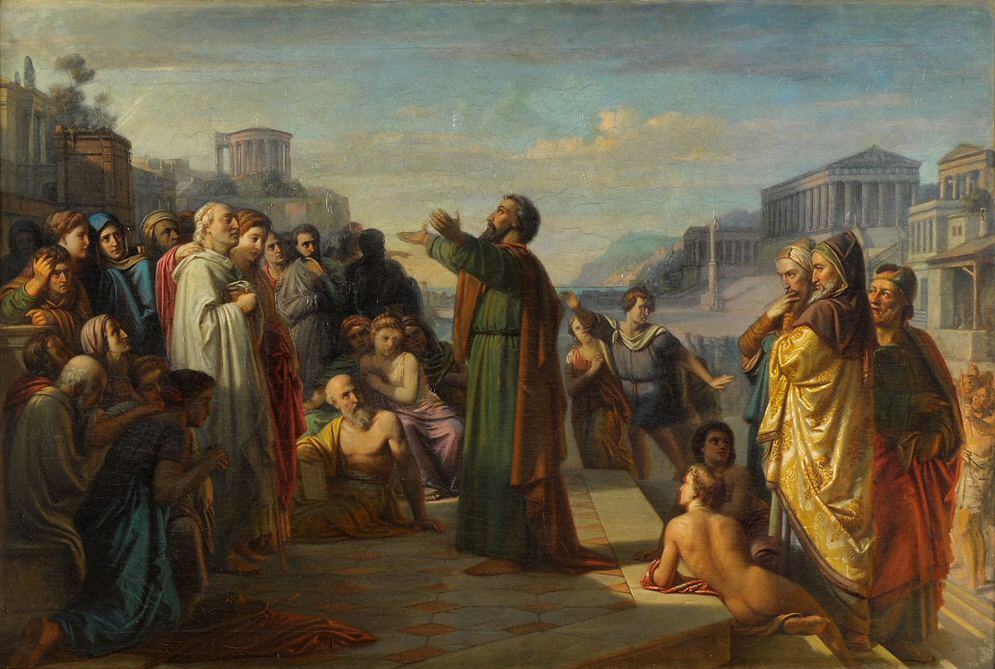***
Athens was one of the most diverse cities in the ancient world. It was a city of intellects – and a city of gods.
There were so many, some used to say, “In Athens, it is easier to meet a god than a person.”
Statues, temples and altars were everywhere.
Perhaps you’ve seen the most famous temple of them all, the Parthenon, located smack dab in the heart of Athens.
There, Greeks could offer sacrifices to any god they wanted, including at the altar to the, “unknown god.”
Though the Greeks worshipped a god of the sky, a god of the sea, a god of wine and so on, they also worshipped an “unknown god,” because they could not box the Divine in.
God was bigger than they could ever imagine.
***
Enter Saint Paul.

***
Imagine him standing in the shadow of the Parthenon, where he begins preaching about Jesus. He is the “Unknown God,” the one through whom everything was created.
If the Greeks want to worship God in his fullness, then they should worship Jesus.
Amazingly, some are converted on the spot.
But they follow Saint Paul for two reasons: he makes logical arguments about our faith – he shows why it’s true… and he does so humbly.
He doesn’t make them feel like fools.
***
So many in our Church could learn from Paul’s example.
Just because we know who God is, doesn’t mean that we should bear hatred or judgment in our hearts towards others who, like the Greeks, have an incomplete picture of God.
Rather, we should humbly dialogue with them, knowing that the truth converts people, but only when the messengers preach with love, not with arrogance.
How, then, can we share the Gospel message of salvation through Jesus humbly with others today?
***



